Climate change promises unfulfilled, pledges forgotten
Climate change has long been debated under different settings, researched and debunked and ‘rebunked’ over the years, so much so that you would think strides should have been made by now, unfortunately however, that has not been the case. Major corporations and rich countries have all fallen short on their so called promises.
Hypocrisy and inaction
COP 26 still lacks large coal using countries. Studies show CO2 levels are back at pre COVID-19 levels in the COP countries but did not include Australia, China or the United States in the assessment.
Such a state of affairs led to climate protests decrying one of the highlights of the COP 26 Summit, the coal pledge.
Children Youth Act climate activists protested their concerns regarding the slow pace of emissions reductions and lack of action on the climate emergency.
Children Youth Act climate activists were rightly worried about the slow pace of emissions reductions and action on the climate emergency.
Nothing will be saved without it is important to begin with the fact you're born to be creators of the ground.
Yrsa Daley-Ward, Writer
The 26th session of the Conference of the Parties to the United Nations Framework Convention on Climate Change.
Carolina Schmidt, President, COP 25
The opening of the COP 26 summit in Glasgow was quite inspiring but it all came down to the final draft communiqué.
Well, you know we got a very lengthy draft decisions from the presidency…
Carolina Schmidt, President, COP25
We need much more concrete action to be sure to actually really meet this 1.5 target.
Maarten Van Aalst, Director, Intl. Red Crescent Climate Centre
But the details of the draft were inconsistent with the declared intention of phasing out coal as a fuel source.
As a reference of a phasing out of coal and we are strong believers that that phase out of coal [is imperative].
Luca Lacoboni, Greenpeace, Italy
Climate Reality, which is funded by the former US Vice President Al Gore, claimed in an article that more than 250,000 Americans are exposed to levels of cancer risk above the highest limits set by the EPA.
This is an environmental justice nightmare and the main culprit is toxic pollution from fossil fuels and petrochemical facilities.
This is what US Senator Ted Cruz said about the climate change summit that took place in Glasgow.
I’m not saying they do not believe what they're saying, but their hypocrisy is rampant. Headed to this climate conference, these officials flew in giant jets.
John Kerry has a private jet that has flown dozens of times this past year all around the country.
I don't know about you, but I don't have a private jet. I don't believe any of the people on this stage have their own private jet.
John Kerry when asked about his private jet said "really, for someone like me it's the only way that makes sense to travel".
What dripping, condescending, arrogance!
Ted Cruz, US Senator
Robert Evans is a former member of the European Parliament, MEP, he is a British Labour Cooperative politician who served as a member of the European Parliament from 1994 until 2009. He was first elected to the European Parliament for London Northwest and then in 1999 and 2004 for the London constituency.
Taking a look at what the US Senator Ted Cruz has said about US policy, slamming his fellow Senator John Kerry and other world leaders as a whole for travelling on jets to this cop 26 Glasgow Summit, does he have a point?
Yeah, I think it's sending entirely the wrong message. I realize the challenges that some global leaders have getting from A to B or getting from their own country to Glasgow, but I think it's sending entirely the wrong message when they are arriving in private jets to go around.
Most of the airlines have flights that come to London where they could have got a train or a number of people could have managed it.
Using private airplanes, which are very, very carbon expensive, is entirely, not so much unnecessary, but it's sending completely the wrong message to everybody else.
We have the situation where our Prime Minister Boris Johnson came back to London by private jet. Well, I looked it up; there were six possible scheduled airlines flights he could have taken, or a train from Glasgow to London.
We cannot have one rule for them and one rule for everybody else.
So global leaders need to reflect on that; whatever the challenges, there are plenty of airlines that could have accommodated them.
Robert Evens, Former MEP, British Labor Cooperative
That makes sense and sounds fair, but ‘therein lies the rub’ and the barely veiled hypocrisy of what US Senator Ted Cruz has said. He himself has, in fact, received more money from oil and gas companies in 2018 than any other senator.
Ted Cruz received nearly $800,000 from the oil and gas industry in the year 2018. And as for other US senators, one in four US Senators still hold fossil fuel investments.
The households of those 28 senators own a combined minimum of $3.7 million, and as much as $12.6 billion in fossil fuel assets.
"The vicious spiral of global debt these countries at the frontline of the climate crisis, unable to respond to his Fallout, and the failure of the world's richest countries to lift the burden exposes their climate hypocrisy", according to The Tribune.
Debt hypocrisy
COP 26 actually exposed the debt hypocrisy of the rich nations, and that is where the problem is. Last year, we had $72 billion flowing out of lower income countries in debt repayments. These are vital resources that could have been directed to tackling the climate emergency and easing the effects of the Pandemic.
Instead, lower income countries are now spending five times more on debt-repayments that they're spending on fighting the climate crisis.
Luca Lacoboni is a campaign manager for energy and climate at Greenpeace, Italy.
When you take a look at the developing countries there was a lack of representation. Why was that at this conference? It's a summit?
[The] most affected countries, the countries that actually see climate change impacting their daily life almost every day around the world are those countries that are less represented in the COP in Glasgow and this is absolutely unacceptable because the richest countries are those who are less feeling the impacts of climate change, and should hear the voices of the most affected countries and of the most effective people.
This is another important sign of the fact that at the moment, also that COP26 in Glasgow is doing a lot of words but really not enough action.
Luca Lacaboni, Greenpeace
One wonders how much money was actually spent fighting the COVID 19 pandemic, and how much was spent saving businesses and countries from actually crashing.
For the prime minister of Barbados, the COP26 summit sheds light on how the desired 1.5 degrees Celsius goal could already have been reached.
The central banks of the wealthiest countries engaged in $25 trillion of quantitative easing in the last 13 years, 25 trillion, of that, 9 trillion was in the last 18 months to fight the pandemic.
If we had used that 25 trillion to purchase bonds, the energy transition or the transition of how we eat or how we move ourselves in transport, we would now be reaching that 1.5 degrees limit that is so vital to us.
Mia Motley, PM Barbados
While social media giant Facebook changed its name to Meta, a group of protestors placed a large melting iceberg sculpture in front of the Capitol Building in Washington. This group said Facebook had played a major role by not stopping the spread of climate disinformation.
Actually, climate disinformation is rampant on Facebook. There's 1.3 million views of climate disinformation daily.
Facebook says that they send 100,000 people to their climate information centre every day.
But if we look at their numbers versus the numbers that we're getting from the researchers, there's a massive discrepancy of how much climate misinformation there really is on their platform.
Rewan Al-Haddad, Sumofus Campaign Advisor
When it comes to climate change there needs to be strong will, on all fronts, from political incentives to budgetary allocations. With so much ground to cover on the issue, where would be the good place to start?
The companies that are responsible for most of the worlds greenhouse gas emissions would be a good place to start.
The 20 major fossil fuel companies are collectively responsible for 35% of global greenhouse gas emissions. Surely if we know who these 20 companies are, then we should stop them from doing what they're doing. If only it were that simple.
What is needed is strong political will, and action by the gas and oil companies responsible.
Considering the top corporations, for example, Saudi Aramco, Gazprom, Exxon, Mobil, BP, and Royal Dutch Shell, and examining how much CO2 they actually emitted into the atmosphere, we are looking at 480 billion tons of carbon dioxide.
That's a lot of CO2, regardless of all environmental disasters that have happened over the past few decades, however, that is not where the controversy lies.
The whole notion of the use of coal, oil and gas and its detrimental effects on the planet and environments has been known from as long ago as the year 1965.
In 1965 the US president’s scientific advisory committee announced that pollutants had altered the carbon dioxide content of the air and the lead concentrations in ocean waters and human populations on a global scale.
In simpler language, fossil fuels were causing the release of carbon dioxide, which was altering the air on a global scale, posing a huge risk for mankind.
More examples
The American Petroleum Institute issued a warning that there's still time to save the planet from the catastrophic consequences of pollution but that time was running out.
So there has been warning after warning, and, as if that were not bad enough an internal memo from Exxon Mobil in 1981 reveals a shocking warning.
One of the managers issued an internal memo saying that the company's long term business plans produce effects which will indeed be catastrophic, at least for a substantial fraction of the Earth's population.
The big oil companies, however, were not going to ignore or forgo their profits, thus in 1989 a company by the name of Global Climate Coalition was established. It was, in fact, not an environmental group as the name may suggest but was intended to actually to sow doubt about climate change.
It actually induced lawmakers to block clean energy legislation and climate treaties throughout the 1990s.
Which is, more or less, when the general public began to doubt the effects of climate change.
The COP 26 goal was to reduce carbon emissions in the hope of eliminating it altogether.
The commitments made by various countries, for instance India, which has pledged net zero emissions by the year 2070, or Saudi Arabia, which made a commitment for net zero emissions by the year 2060 are both very far into the future.
We were under the impression that time is running out and it now appears that those commitments shall not be enough.
Saudi Arabia is a very rich country and it's done very well out of oil over many years. Of course, I understand why it's worried about changing it.
But if you're going to have a net zero by 2060, nearly 40 years away, it's totally unacceptable as a target. Now, it may be that they don't reach it till then but I do believe that countries have got to set ambitious targets and really make much greater moves.
You know, the reason that we are still driving around in petrol driven cars, to a large extent, when 50 years ago, they had the technology to build battery vehicles, they just haven't developed it, is because of the power of the oil industry over the years, the oil industry in the Middle East, and the plentiful supply of cheap oil.
The amount of investment (that could have) gone into alternative forms that went into, for instance, mobile phones, which are now very sophisticated pieces of technology.
If the same amount of effort and energy had gone into more environmentally friendly, mass produced vehicles, we would not all be driving around in petrol driven vehicles at the moment.
Robert Evens, Former MEP, British Labor Cooperative
Subsidized Oil and Gas
The statement lays out important steps CO2 emissions as well including the need to accelerate using best efforts, by all of us, to phase down unabated coal in this decade, as fast as is achievable.
John F Kerry, US Climate Envoy
The US climate representative neglects to point out the fact that the US government has actually subsidized coal, oil and gas for decades to the tune of a billion dollars a year.
So in the draft today, we saw that coal was referenced in the draft as well as subsidies. That's not good enough! 86% of the emissions trapped in our atmosphere come from oil, gas and coal, and while we talk about targets and emissions here, these governments, many of them, especially the wealthy nations, are proposing new projects that would take us past 1.5 degrees.
Tzeporah Berman, Chair, Fossil Fuel Non-Proliferation Treaty
It comes as no surprise that there are protests against this blatant hypocrisy.
At the moment isn't sufficient. And we need, you know, world leaders from the richest and most polluting countries to raise their efficiency and to provide a clear mandate for countries to come back to the table next year with more ambitious emission reduction by 2030.
Armelle Le Comte, Climate Advocacy Manager, Oxfam
One of the things that stood out at the COP26 summit was the presence and the actions of the activists, urging world leaders to act on climate change, keen on pointing out the hypocrisy of feeding lies to the general public.
Take the group of activists led by members of the Extinction Rebellion direct action group who highlighted how the mode of transportation chosen makes a difference, like opting to travel by rail rather than air.
It is our job to make it very clear; travelling by train for this distance (instead of by air) is justified by the carbon emission when we compare that to airlines.
Jacques Damas, CEO, Eurostar
Another mode of transportation that needs reforming is global shipping. There is actually a trillion dollar push to decarbonize cargo ships, which are huge carbon emitters.
Therefore, if countries and companies hope to meet the Paris Agreement targets, they must change the way freight shipping is managed. The use of electric batteries or alternative fuels is one way to go about this.
At present shipping products across the ocean using freight ships creates more greenhouse gas emissions than the estimated 2 billion US cars and trucks on America's roads combined, at around 1 billion metric tons.
Activists with the group Ocean Rebellion held a theatrical demonstration in an attempt to demonstrate the need by COP 26 attendees to step up efforts to protect their national borders, calling for greater investment in ocean based renewable energy, decarbonization of industries and further pertinent research.
So today, we have one of our Ocean Rebellion classic theatrical performances, creating conscious pricking imagery to try and help tell the story, which today is on the eve of COP Ocean day to draw attention to the delegates that our oceans need to be way up on their agenda.
It covers 70% of our [planet] and provides 50 to 80% of the oxygen that we breathe, so it's vitally important and our oceans are at crisis point.
Laura Baldwin, Ocean Rebellion, Member
$100 Million pledge made and lost in Copenhagen
Twelve years ago, at the United Nations climate summit in Copenhagen, rich nations made a significant pledge; they promised to channel 100 billion US dollars a year to less wealthy nations, by 2020, to help them tackle climate change and mitigate further rises in global temperatures.
Another clear case of climate hypocrisy was evidenced when one climate activist asked the British Finance minister about UK tax breaks and funding for fossil fuel companies.
The UK Prime Minister had earlier made a grand pledge to some bemused young pupils at an infant school to cut greenhouse gas emissions.
And then there was the United States Special Presidential Envoy for Climate, John Kerry, talking about emissions.
The IPCC report is the synthesis report of the NDC's, indicates that we have to achieve somewhere in the vicinity of a 45% reduction over the next 10 years.
John F Kerry, US Climate Envoy
But the best these two so called world leaders could do was to squeeze a 2060 pledge out of Saudi Arabia.
I announce today that the Kingdom of Saudi Arabia aims to reach net zero in the year 2060, through the carbon circular economy approach, in line with its development plans and enabling its economic diversification and in accordance with the “Dynamic Baseline”, while preserving and reinforcing the Kingdom’s leading role in the security and stability of global energy markets.
Crown Prince of Saudi Arabia, Mohammad Bin Salman
The COP 26 Climate Summit has ended, more than 190 nations reached a deal, but without an enforcement mechanism, critics are saying the agreement, which calls on governments to strengthen greenhouse gas emission cuts, is going to fall short if not flat on its nether regions.
We are, globally speaking, a consumer driven society with billions of products which are produced using material and substances produced by these oil companies.
Unless we change the way we live, our lifestyles, and how we spend our money, that is not going to change, and the petroleum companies are well aware of that, which is why they will most probably not live up to their clean energy commitments; thought provoking yet hardly surprising.
Russia downs over 40 Ukrainian drones as Putin vows 'destruction' on Kiev
VIDEO | Yemen: A bone in Israeli neck
D-8’s role in Iran’s economy after Cairo summit
China slams US as ‘war-addicted’ threat to global security
China ‘firmly opposes’ US military aid to Taiwan
VIDEO | Press TV's News Headlines
President Yoon Suk Yeol to be removed from office
At least 19 Gazans killed by Israeli airstrikes since dawn: Medics


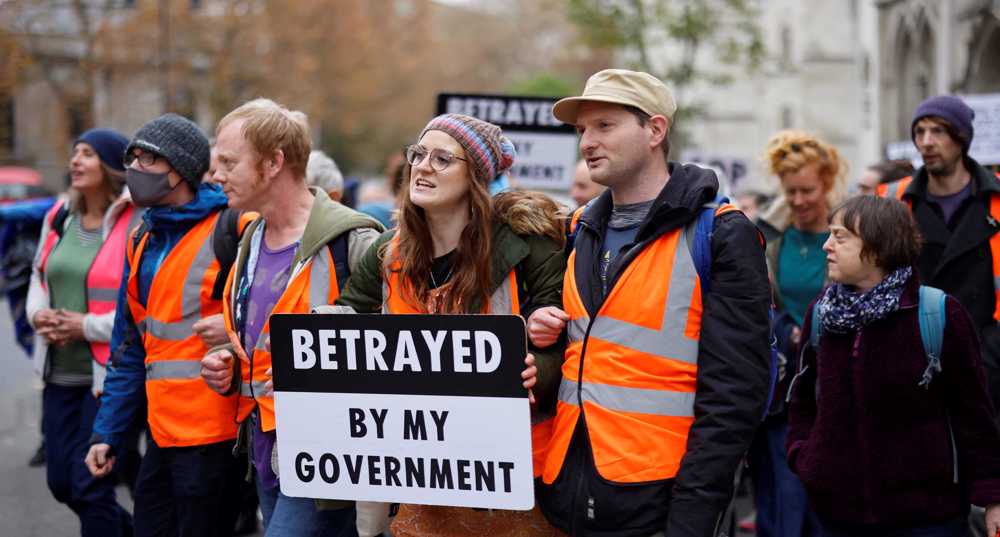

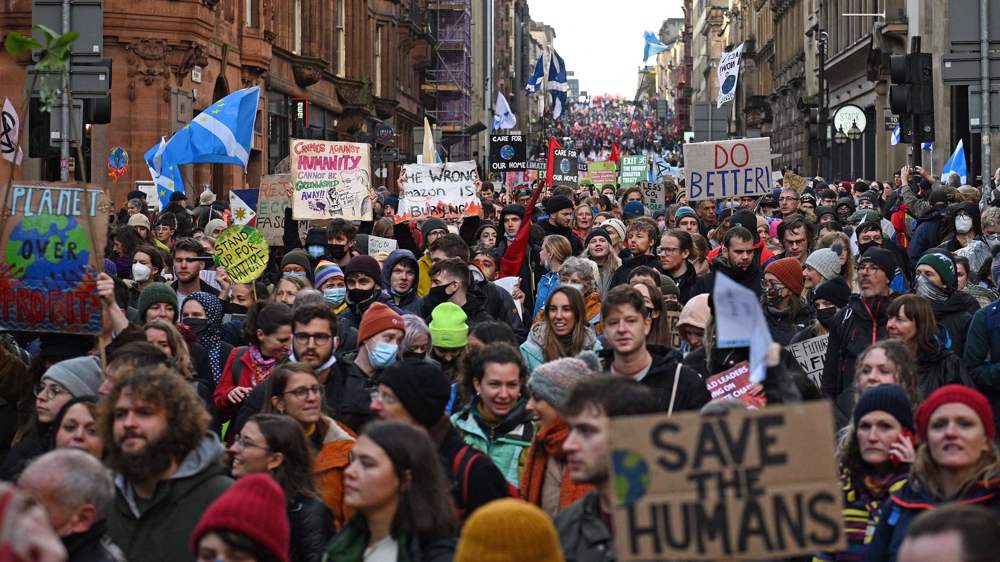

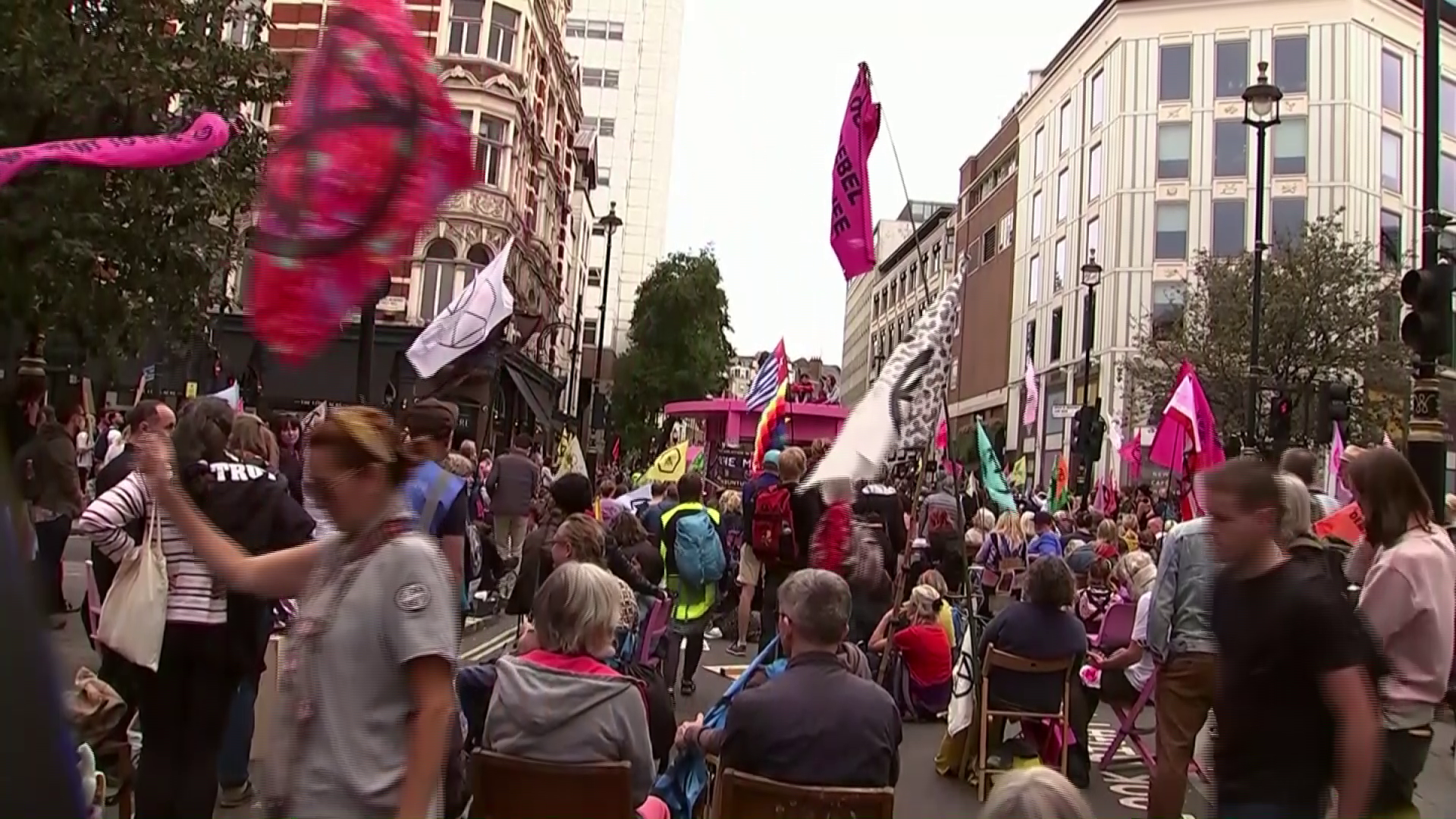
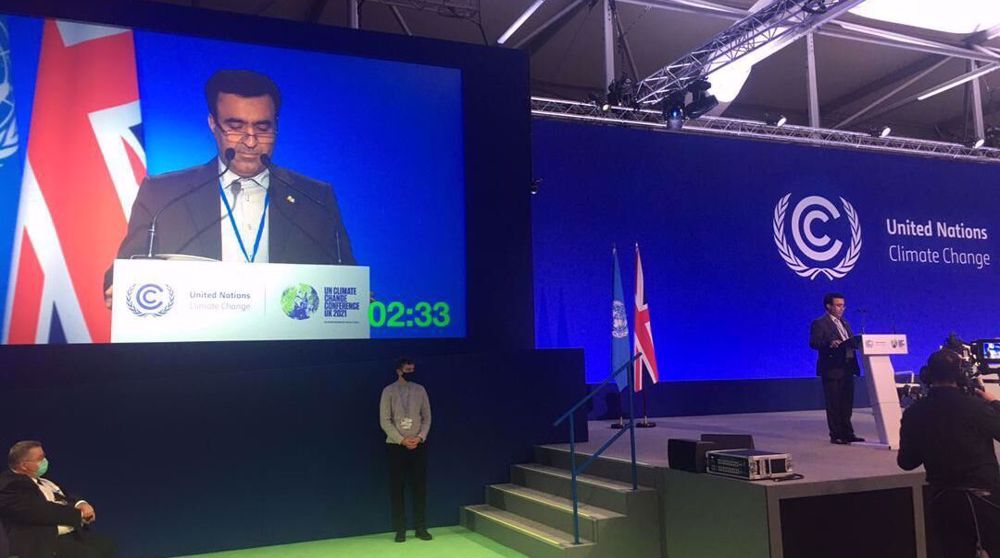

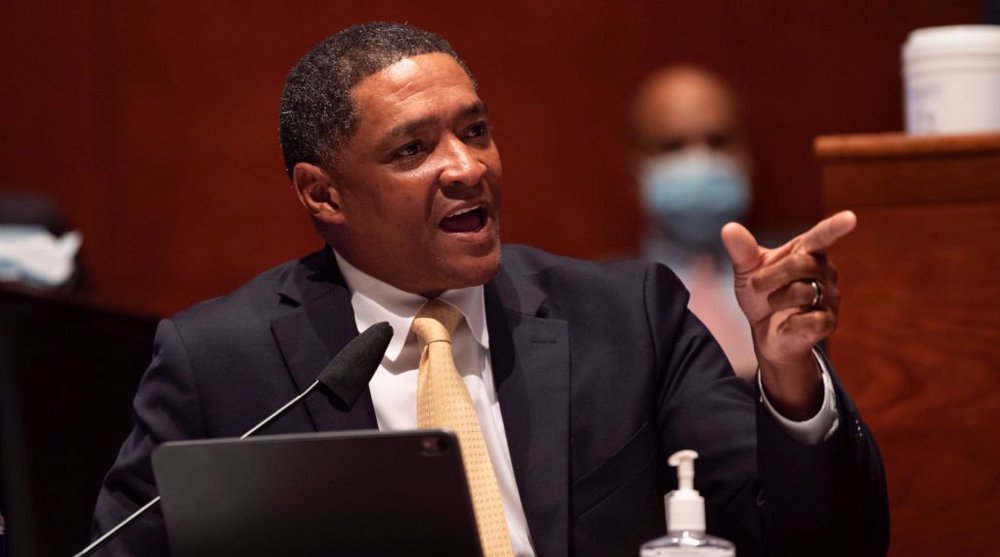



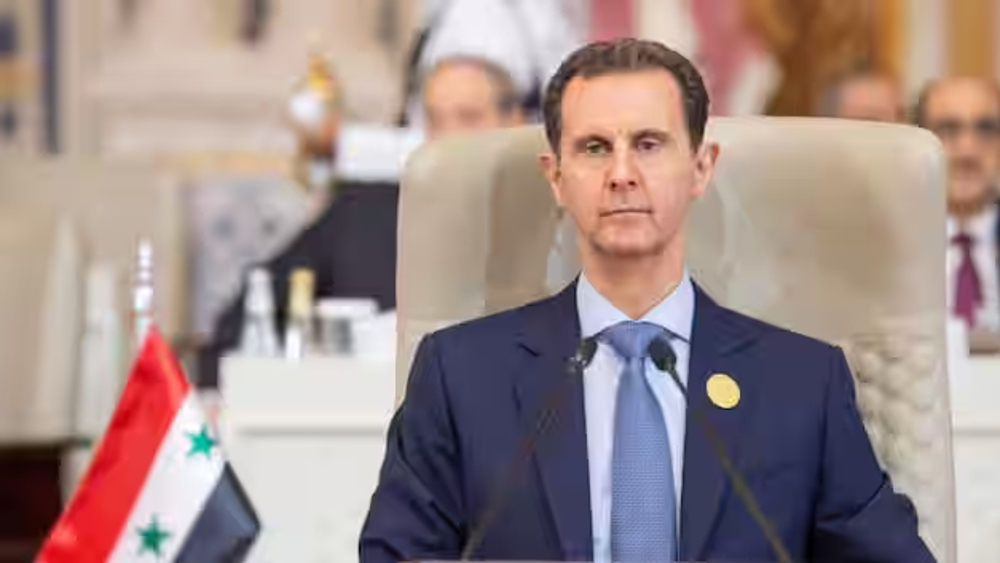




 This makes it easy to access the Press TV website
This makes it easy to access the Press TV website